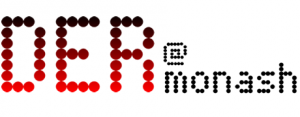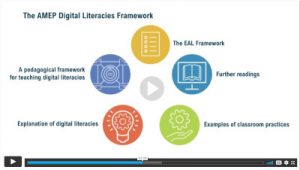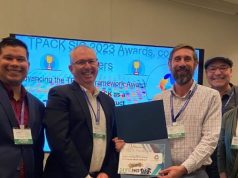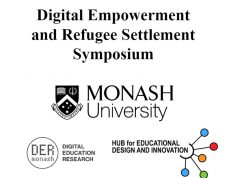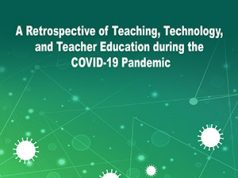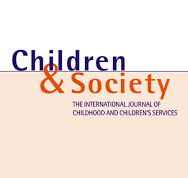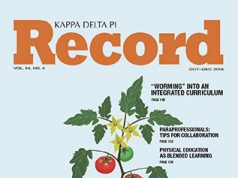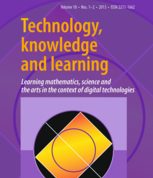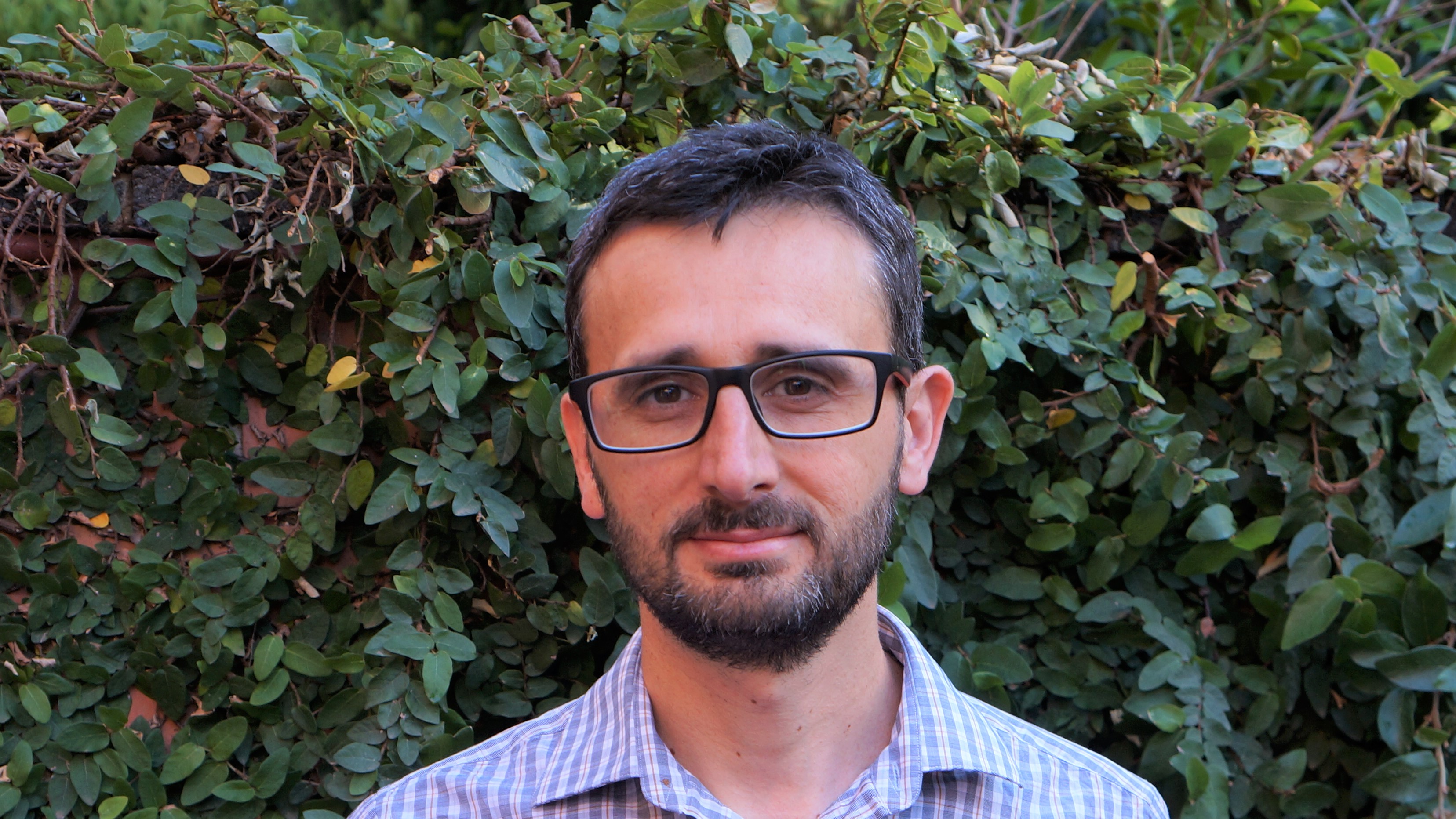Digital literacies for people from refugee backgrounds have been widely recognized as critically important for settlement and employment.
This project set out to generate new knowledge in the fields of digital literacies and TESOL by developing and piloting a much-needed conceptual framework for understanding the pedagogical principles for effective teaching of digital literacies to adult refugee and migrant English language learners.
Our project team worked with the Australian Department of Home Affairs, LWA, educators and adult learners to develop the AMEP Digital Literacies Framework and Guide.
.
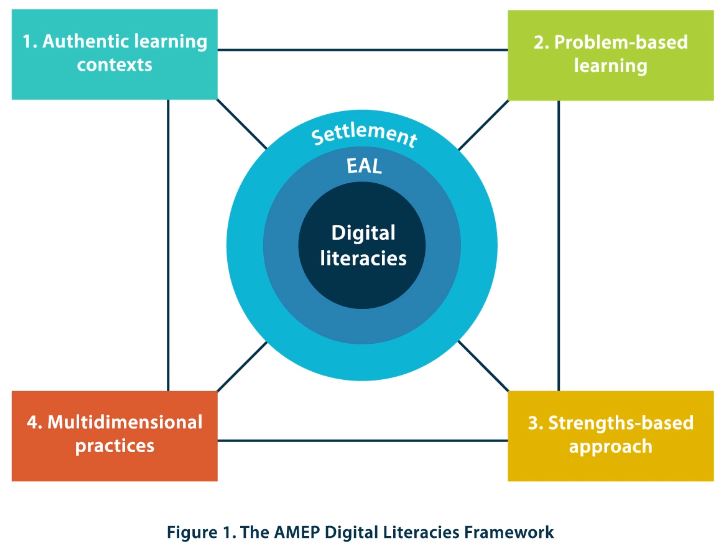
AMEP Digital Literacies Framework
Teaching digital literacies in adult EAL programs requires appropriate pedagogies.
The AMEP Digital Literacies Framework positions digital literacies as a crucial part of settlement and emphasises that learning digital literacies and English should sit together. The Framework further identifies the four key principles that inform the development of digital literacies pedagogies that connect to the world of adult learners.
Resources for AMEP providers and teachers
The research project resulted in a number of practical resources for AMEP sector and practitioners.
This video explains the framework and resources below
The AMEP Digital Literacies Framework and Guide
Link
https://doi.org/10.26180/20493207.v3
About
This resource explains the notion of digital literacies, introduces a pedagogical framework for teaching digital literacies in adult EAL settings and presents 15 teaching units with a range of teaching ideas and loosely sequenced scaffolding activities which allows educators to:
-
- connect learning units both to The EAL Framework, syllabus and to learners’ lives to achieve multiple learning objectives
- adapt learning units for specific teaching contexts by modifying the tasks
- adjust the level of challenge through different levels of scaffolded support, depending on learners’ strengths and needs
- innovate by organising learning activities in different ways
- use The AMEP Digital Literacies Framework and Guide as a model for developing new learning units
How to cite
Tour, K., Creely, E., Waterhouse, P., & Henderson, M. (2022). AMEP Digital Literacies Framework and Guide. Monash University. https://doi.org/10.26180/20493207.v3
The AMEP Digital Literacies Framework and Guide – Teaching resources
Link
https://doi.org/10.26180/20502417.v1
About
This booklet includes teaching resources which were designed and piloted by EAL teachers, with their learners participating in this research project. This booklet does not attempt to address all of the units in The AMEP Digital Literacies Framework and Guide; however, these resources do relate directly to five units. These teaching resources illustrate how The AMEP Digital Literacies Framework and Guide can be used in practice, and each of these lesson plans includes:
-
- a link to The EAL Framework;
- a sequence of lessons outlining procedures and activities;
- relevant teaching materials, including worksheets, discussion questions and instructional videos created by teachers;
- links to The AMEP Digital Literacies Framework and its key principles.
How to cite
Tour, K., Creely, E., Waterhouse, P., & Henderson, M. (2022). AMEP Digital Literacies: Teaching Resources. Monash University. https://doi.org/10.26180/20502417.v1
Digital Literacies Diagnostic Tool
Link
https://doi.org/10.26180/20502435.v1 [PDF]
About
This diagnostic tool is a form of diagnostic assessment that enables teachers to gather important information about the current digital literacy practices of learners and assess their strengths, needs and aspirations related to digital literacies. This information can then be used to guide subsequent planning for the effective teaching of digital literacies. At the heart of the tool is a process of teachers knowing their learners to enable best practice planning for teaching.
How to Cite
Tour, K., Creely, E., Waterhouse, P., & Henderson, M. (2022). Digital Literacies Diagnostic (DLD) Tool. Monash University. https://doi.org/10.26180/20502435.v1
What are digital literacies?
The concept of digital literacies is defined and understood in many different ways, depending on theoretical orientations and educational purposes. The AMEP Digital Literacies Framework and Guide is based on the proposition that there is no one universal form of digital literacy easily transferable from one context to another. Rather, different contexts, social purposes and technologies will require a range of skills, knowledge and understandings. From this perspective, digital literacies are defined as purposeful and critical practices involving multimodal reading, writing, creating, communicating and viewing with digital technologies.
Examples of digital literacy practices are numerous, and new ones continue to emerge as technologies develop and people go about their lives (Jones & Hafner, 2021). Thus, it is impossible to list all digital literacy practices that people engage in. A useful starting point may be thinking about digital literacies as language (and non-language) activities that people practise in different digital environments, for specific social purposes and across different social contexts (Tour, 2020).
Some examples of digital literacy practices include:
- Accessing and viewing meaningfully a cooking tutorial on YouTube
- Navigating to and reading sport news on The Age webpage
- Completing an online form on HotDocs to book a medical appointment
- Text messaging a real estate agent to organise a property inspection
- Sending an email to a child’s teacher about absence
- Planning a car trip to Ikea using Google Maps
- Downloading personal immunisation history on the Medicare platform
Learning digital literacies is an ongoing and lifelong process. Therefore, the role of the formal learning settings is to prepare students for the evolving nature of digital literacies rather than just focus on skills development.
The more exposure to different digital literacy practices learners have, the more confident they become to independently engage in new practices that will be continuously emerging in their lives (Rowsell et al., 2017).
About the project
This project set out to generate new knowledge in the fields of digital literacies and TESOL by developing and piloting a much-needed conceptual framework for understanding the pedagogical principles for effective teaching of digital literacies to adult refugee and migrant English language learners.
The importance of digital literacies for settlement and employment of people from refugee and migrant backgrounds has been widely recognised. However, there is scarce research about the digital needs of this vulnerable group of learners as they settle in Australia. There is a need for a conceptually rigorous and research-informed approach to the teaching of digital literacies within adult EAL contexts.
Using multiple comparative case study, this three-phase research project has been designed to:
- contribute new understanding of the critical factors hindering and supporting digital literacy practices of these learners for settlement and employment; and
- develop a evidence based resource, the AMEP Digital Literacies Framework and Guide.
The aim is to support the work of AMEP institutions and teachers aspiring to equip their learners with a useful repertoire of digital literacies required for settlement and gaining employment in Australia.
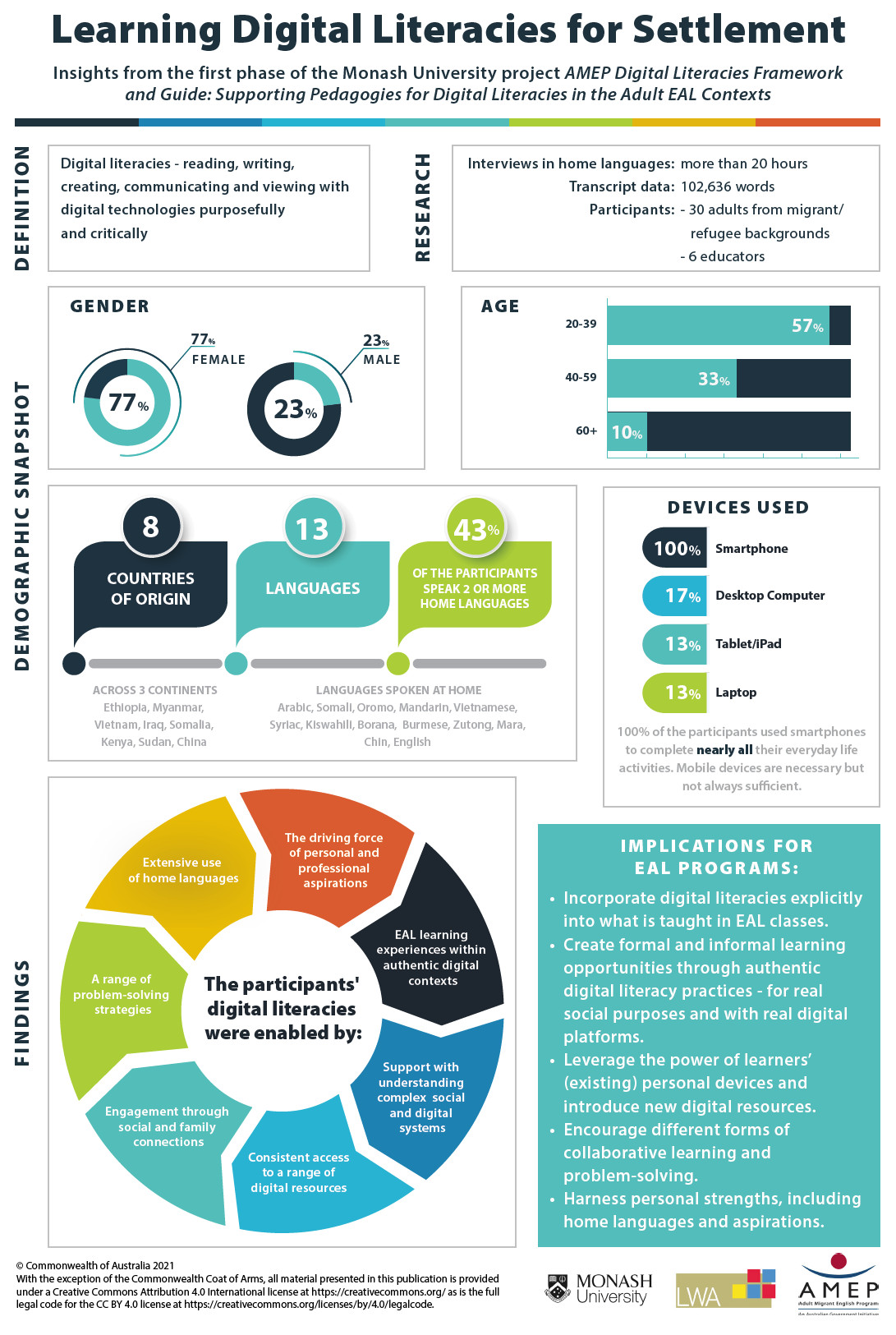
Project team

Dr Katrina Tour
Katrina’s research focuses on the digital literacies of children and adults from refugee and migrant backgrounds. She investigates the ways in which these groups use digital technologies in English as an Additional Language (EAL) for life, learning and employment, and explores how these experiences can be used to enhance educational policies and pedagogies for digital literacies in EAL/TESOL settings.

Dr Ed Creely
Ed has wide ranging experience in education from primary and secondary to tertiary and adult education. His current projects include academic wellbeing, digital literacies for adults from migrant and refugee backgrounds, creativity and literacy practices in the middle years.

Dr Peter Waterhouse
Peter is an experienced adult educator, lecturer, manager, consultant and researcher with an established track record in teaching and research relating to adult learning, adult literacy, work, skills, and workplace change.

Dr Xuan Pham
Dr Xuan Pham joined this project as a research assistant. Dr Pham has expertise in adult education, with a focus on educational identities and differences in relation to gender, ethnicity and migration. She is also interested in critical English language and literacy, with a particular attention to the dynamic power relations that have shaped the positioning of the language, literacy and experiences of those stakeholders involved.

Professor Michael Henderson
Michael is a senior leader and scholar in the field of digital education. Unique to his profile is that his research spans early childhood, schools, universities, professional and informal learning contexts. His current research projects are generally aligned with the three broad fields: assessment and feedback, risk (wellbeing and creativity), and effective teaching and learning with online technologies.
